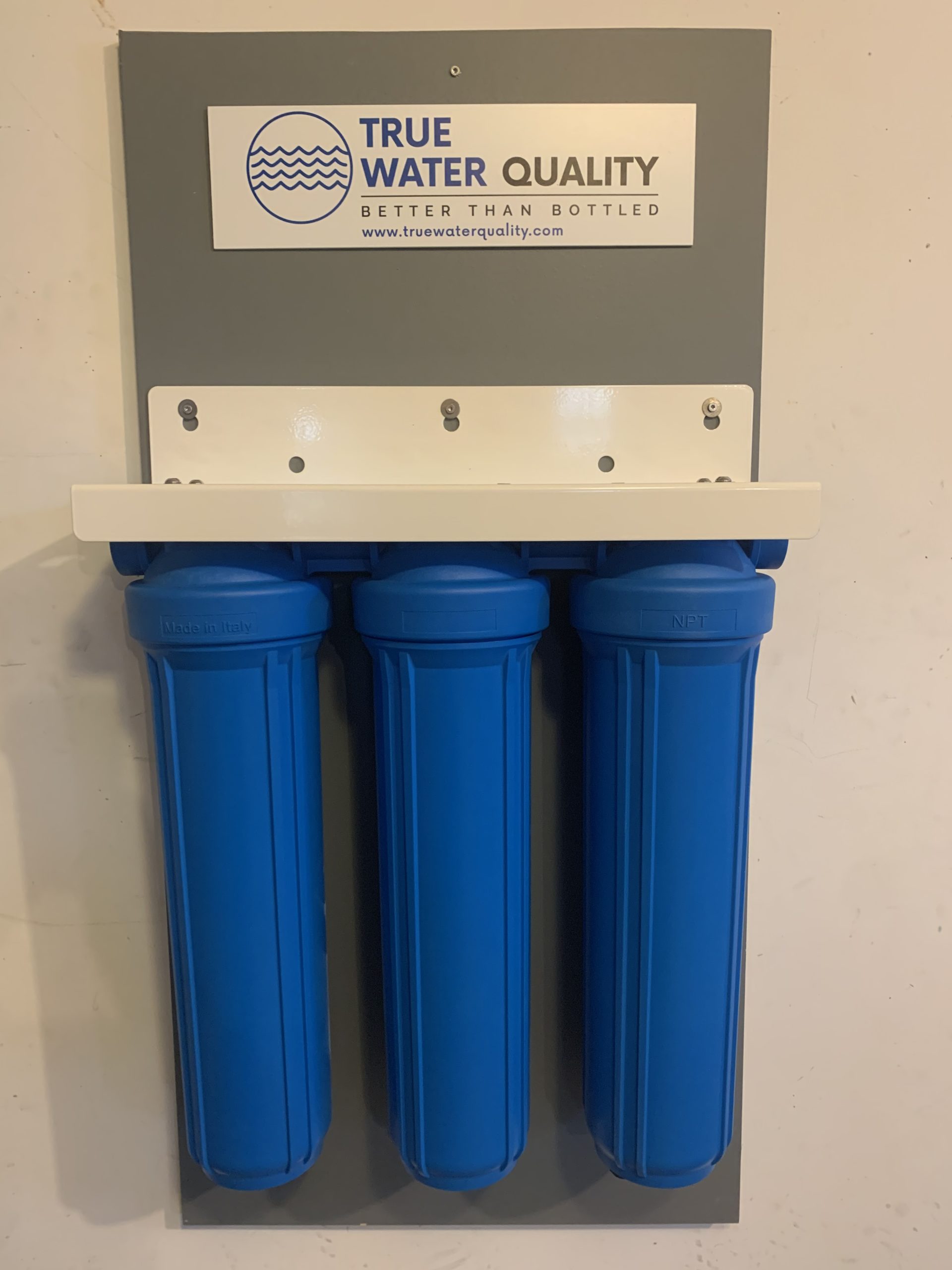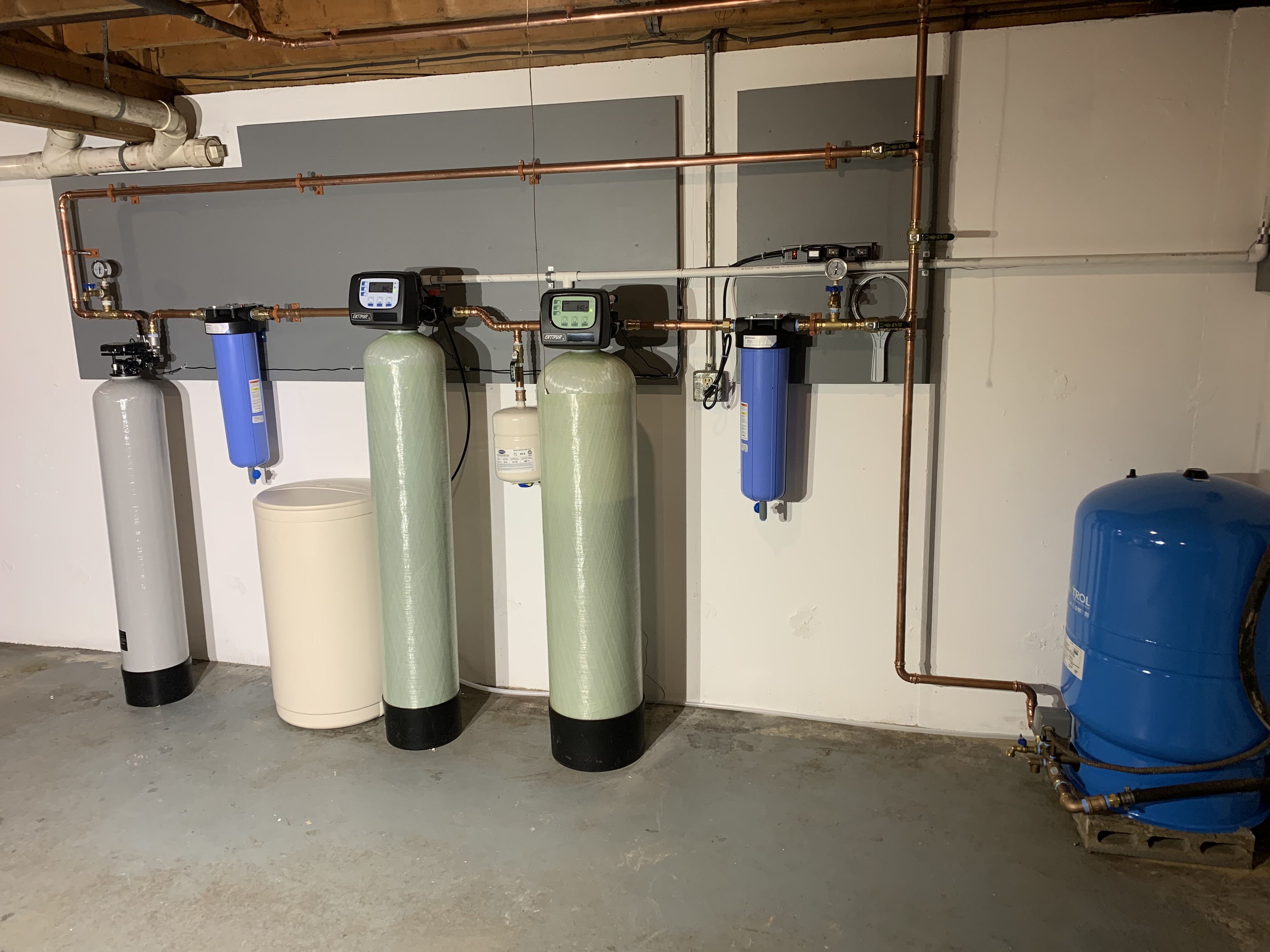The importance of comprehensive testing of well water
According to the EPA, private well owners are solely responsible for the safety of their water.
Private wells are not tested by any governmental authority, it is entirely up to the homeowner to safeguard and test their own water. A well owner must be aware of their well’s potential for contamination and the possible health effects those potential contaminants can have.
Potential Sources of Well Contamination
Private wells can be contaminated by both naturally occurring sources and by human activities. The following are commonly found contaminants, their sources, and their possible human health impacts.
Microorganisms include bacteria, viruses, and parasites. They can be found all over the surface of our planet and are found in human sewage and animal waste. People that consume drinking water containing microorganisms can experience gastrointestinal illnesses and infections.
Nitrate and nitrite are present in chemical fertilizers, human sewage, and animal waste and fertilizers. They can contaminate a private well through groundwater movement and surface water seepage and water run-off. High levels of nitrate and nitrite are most serious for infants. High levels of nitrate/nitrite in drinking water can cause methemoglobinemia or “blue baby syndrome”.
Heavy metals can leach into drinking water from household plumbing and service lines, mining operations, petroleum refineries, electronics manufacturers, municipal waste disposal, cement plants, and natural mineral deposits. Heavy metals include: arsenic, antimony, cadmium, chromium, copper, lead, selenium and many more. Heavy metals can contaminate private wells through groundwater movement and surface water seepage and run-off.
Organic chemicals are found in many house-hold products and are used widely in agriculture and industry. They can be found in inks, dyes, pesticides, paints, pharmaceuticals, solvents, petroleum products, sealants, and disinfectants. Organic chemicals can enter ground water and contaminate private wells through waste disposal, spills, and surface water run-off.
Radionuclides are radioactive forms of elements such as uranium, radium & Radon. Radionuclides may be naturally present in ground water in some areas, especially in New England. Radionuclides can contaminate private wells through groundwater flow, waste water seepage and flooding.
Comprehensive testing is critical for well water. To be clear, this is not the testing that can be done in your home, it’s testing that needs to be performed by a certified lab. Testing that is performed at your home is typically more for nuisance type issues like hard water. A comprehensive test should be carried out regularly and include at a minimum testing for: Arsenic, Bacteria,Chromium 6, Mercury, Nitrates, Radon, Volatile organic compounds (VOCs)
There is a misconception that having a private well “checked” is something that is done one time. Unfortunately, this is not the case. It is highly recommended that as a well owner you should conduct comprehensive testing on a regular basis. Basic water screening of the type done for “free” onsite, doesn’t give information about lead, arsenic, chromium 6, mercury, radon, or volatile organic compounds (VOCs). It’s the well owner’s responsibility to run tests.
If you are in the process of buying a home with well water, don’t buy a home without having the well tested first. If tests have already been carried out, ensure it was recent and comprehensive.
Again, if you own a private well system, it’s hugely important that you conduct routine checks to ensure the purity of the water you drink and use. Even if the water looks clear it can still be contaminated. Plus, contamination levels can change at any time. Just because the water is safe at one check, it does not guarantee that it will continue to be safe. There are well water filters that can purify and disinfect the water, but any water problems need to be identified through water testing to ensure the correct type of well water filter system is designed.
A properly installed and well maintained whole house water purification system based on recent test results should be considered an important part of a smart, proactive approach to wellness & illness prevention.
Types of Water Filtration Systems
Carbon Based Systems for Homes on Well Water
Water purification systems for whole house applications use various forms and types of carbon. The carbon can be in extruded block cartridges, granulated filled cartridges or granulated and loose in floor tanks. Activated coconut shell carbon is the most common and cost effective type used for water filtration. There are hundreds of types of carbon processed to capture specific pollutants such as lead. A single teaspoon of granulated activated carbon has the surface area of a football field. Thousands of chemical pollutants can be captured by carbon based water filtration technology leaving your water purer, fresh tasting and safe to shower and bathe in.
Learn more about Carbon Systems
Wall mounted cartridge type systems
 Wall mounted cartridge type systems such as our popular Italian made TWQ-3000 Whole House Water Purification System ( shown here ) are designed for general use cartridges as well as a variety of specialized cartridges. With this system we can target specific water contaminants such as lead, or other contaminants identified in your water testing. The housings are standard sized and non proprietary 4.5″ X 20″ cartridges. You will avoid single source, proprietary design, replacement cartridges for your water filter system. Simply put, you will be able to have any company you choose service your system and replacement cartridges will always be available. Proprietary type cartridges always use excessive amounts of plastic to create their product and are far less “green ” than their non proprietary counterparts. You will benefit not only from more competitive pricing, but also by being able to upgrade your filtration system to improved purification technologies from a variety of makers as they become available.
Wall mounted cartridge type systems such as our popular Italian made TWQ-3000 Whole House Water Purification System ( shown here ) are designed for general use cartridges as well as a variety of specialized cartridges. With this system we can target specific water contaminants such as lead, or other contaminants identified in your water testing. The housings are standard sized and non proprietary 4.5″ X 20″ cartridges. You will avoid single source, proprietary design, replacement cartridges for your water filter system. Simply put, you will be able to have any company you choose service your system and replacement cartridges will always be available. Proprietary type cartridges always use excessive amounts of plastic to create their product and are far less “green ” than their non proprietary counterparts. You will benefit not only from more competitive pricing, but also by being able to upgrade your filtration system to improved purification technologies from a variety of makers as they become available.
Backwashable Floor Tank Systems
 For larger homes with high water usage, backwashable floor tanks are often the appropriate solution. Wall mounted systems are less expensive but will restrict the flow of water needed in larger homes. Specially designed for either chemically treated municipal water or well water, these filters can house a variety of different media designed to treat your particular water.
For larger homes with high water usage, backwashable floor tanks are often the appropriate solution. Wall mounted systems are less expensive but will restrict the flow of water needed in larger homes. Specially designed for either chemically treated municipal water or well water, these filters can house a variety of different media designed to treat your particular water.
Tanks are sized to your homes water usage as well as pipe size at the water main. Tanks are usually 2/3 filled with special media such as G.A.C. (granulated activated carbon), coconut shell carbon or other specialized media like Arsenic absorption media. Raw water flows downward through the media and up through a central tube to the homes piping system. Automatic timed backwashes are necessary to agitate the media which prevents channeling of water unevenly through the media and lowering its effectiveness. This backwashed water is directed to an interior drain or to outdoors. These systems are more complex and require additional plumbing work when compared to wall mounted cartridge systems.
Delivery and Installation
All whole house water purification systems must be installed by a licensed plumber and be inspected by your local plumbing inspector. We can use our own associate plumbers or we are happy to work with your plumber. Our systems are always installed with a bypass valve set up. This allows the system to be taken off-line and serviced without interrupting water to the home. Our systems are typically installed in two phases. First any legacy filtration systems are removed and properly recycled by True Water Quality staff, then strong, pre-painted wall mounting boards are secured. After this all tanks, valves and other components are installed by True Water Quality staff. Next (typically the following day) the new system is tied into your home’s water system by a licensed plumber. Finally, when all work has been completed to code, the town’s plumbing inspector visits the home to inspect all completed work and sign off on the plumbing permit.
At TWQ we pride ourselves on the quality of our installations, all basement installations get properly prepared including pressure treated wood stringers “hammer drilled” to your home’s foundation.

All installations are made secure to ¾ sustainably harvested plywood that is pre-painted with 2 coats of special paint.

No other installer in the Eastern Massachusetts comes close to the level of workmanship in every one of our installations

